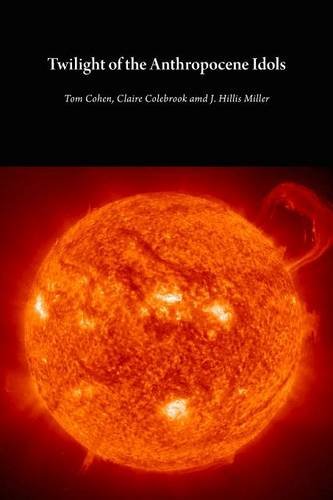L’Internationale (ed.): Decolonising Museums (2015)
Filed under book | Tags: · art, colonialism, decolonization, museology, museum

“Decolonising Museums addresses colonial legacies and mindsets, which are still so rooted and present today in the museum institutions in Europe and beyond. The publication draws from the conference Decolonising the Museum which took place at MACBA in Barcelona, 27-29 November 2014, and offers new essays, responding to texts published on the online platform earlier this year.
In different geopolitical regions, there have been various degrees of work to reconsider the colonial past ever since the 1960s, the painstaking process of decolonisation and the institutionalisation of multiculturalism. Scrutinising the complex European context, one can talk about belated processes taking place in France, Belgium and Holland, the generational divides in the discussion around ‘identity politics’ and the obvious dichotomies between the South and the North. Especially in times when dealing with waves of refugees struggling for their lives has become one of the most urgent civic and individual responsibilities in Europe. Calling upon cultural memory and half-gone history seems to be of utmost importance to oppose the often politically-guided amnesia and ignorance.” (from the Introduction)
Publisher L’Internationale Online, 2015
Managing editor: Nataša Petrešin-Bachelez
Open access
192 pages
PDF, PDF (13 MB)
EPUB, EPUB (12 MB)
Max Bense: aesthetica IV. Programmierung des Schönen. Allgemeine Texttheorie und Textästhetik (1960) [German]
Filed under book | Tags: · aesthetics, information theory, literary theory, statistics, text, theory

“Max Benses informationeile Ästhetik schließt mit einer Allgemeinen Texttheorie ab, die, auf der Grundlage statistischer Untersuchungen von Fucks, Herdan, Mandelbrot u. a., als Modell der neuen statistischen Zeichen-Ästhetik aufgefaßt werden kann.
Die Allgemeine Texttheorie bezieht sich auf jede Art von Text, schließt also die ästhetische Theorie der Poesie und Prosa, aber auch der wissenschaftlichen Sprachen, Werbesprachen und abstrakten Sprachen usw. ein.
Der Begriff Text wird dabei als derjenige sprachliche Zustand aufgefaßt, der statistische bzw. informationelle, semantische bzw. ästhetische Formen meint, aus deren Materialität Poesie und Prosa im klassischen Sinne erst hervorgehen. Der Begriff Text zielt also nicht auf vorästhetische Zustände der Sprache ab, sondern auf vorpoetische und vorprosaische. Er bestimmt gewissermaßen die archaischen theoretischen Fundamente der Literatur.
Allgemeine Texttheorie umfaßt also Textstatistik, Textsemantik, Textphänomenologie und Textästhetik. Der bisher völlig unklar oder falsch verwendete Ausdruck Logik der Dichtung verschwindet zugunsten des genau formulierbaren Ausdrucks Textsemantik, der den Begriff Textlogik mit umfaßt.
Es werden also sowohl numerische wie essentielle Überlegungen zum Begriff Text angestellt.
Die Allgemeine Texttheorie erscheint als Grundlagenforschung für zukünftige Literaturwissenschaft und Literaturtheorie. Sie will exakte Mittel einführen und der beliebigen üblichen Interpretation, soweit sie nicht historische Fakten herausstellt, ein Ende bereiten.” (from the dusk jacket)
Publisher Agis, Baden-Baden and Krefeld, 1960
128 pages
via Mitchell Johnson
Commentary: Reinhard Döhl (n.d., DE).
Comment (1)Tom Cohen, Claire Colebrook, J. Hillis Miller: Twilight of the Anthropocene Idols (2016)
Filed under book | Tags: · anthropocene, climate crisis, ecocriticism, environment, human, literature, theory

“Following on from Theory and the Disappearing Future, Cohen, Colebrook and Miller turn their attention to the eco-critical and environmental humanities’ newest and most fashionable of concepts, the Anthropocene. The question that has escaped focus, as “tipping points” are acknowledged as passed, is how language, mnemo-technologies, and the epistemology of tropes appear to guide the accelerating ecocide, and how that implies a mutation within reading itself—from the era of extinction events.
Only in this moment of seeming finality, the authors argue, does there arise an opportunity to be done with mourning and begin reading. Drawing freely on Paul de Man’s theory of reading, anthropomorphism and the sublime, Twilight of the Anthropocene Idols argues for a mode of critical activism liberated from all-too-human joys and anxieties regarding the future. It was quite a few decades ago (1983) that Jurgen Habermas declared that ‘master thinkers had fallen on hard times.’ His pronouncement of hard times was premature. For master thinkers it is the best of times. Not only is the world, supposedly, falling into a complete absence of care, thought and frugality, a few hyper-masters have emerged to tell us that these hard times should be the best of times. It is precisely because we face the end that we should embrace our power to geo-engineer, stage the revolution, return to profound thinking, reinvent the subject, and recognize ourselves fully as one global humanity. Enter anthropos.”
Publisher Open Humanities Press, 2016
Critical Climate Change series
Creative Commons BY-SA 4.0 License
ISBN 9781785420153 (Print), 9781785420160 (PDF)
220 pages
PDF, PDF, PDF (3 MB, updated on 2016-7-19)
Comment (0)
